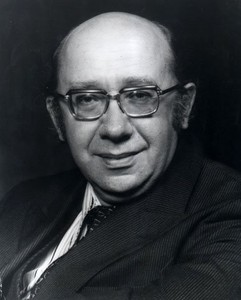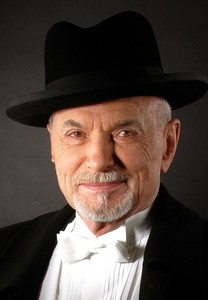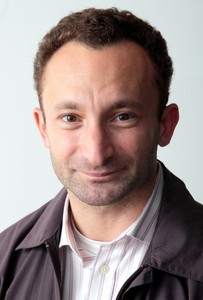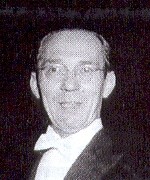
Gennady Rozhdestvensky |
Gennady Rozhdestvensky

Gennady Rozhdestvensky is a bright personality and powerful talent, the pride of Russian musical culture. Each stage of the creative activity of the world-renowned musician is a grandiose section of the cultural life of our time, aimed at serving Music, “the mission of bringing Beauty” (in his own words).
Gennady Rozhdestvensky graduated from the Moscow State Conservatory in piano with Lev Oborin and in conducting with his father, the outstanding conductor Nikolai Anosov, as well as postgraduate studies at the conservatory.
Many bright pages of the creative biography of Gennady Rozhdestvensky are associated with the Bolshoi Theater. While still a student at the conservatory, he made his debut with Tchaikovsky’s The Sleeping Beauty (the young trainee performed the entire performance without a score!). In the same 1951, having passed the qualifying competition, he was accepted as a ballet conductor of the Bolshoi Theater and worked in this capacity until 1960. Rozhdestvensky conducted the ballets The Fountain of Bakhchisaray, Swan Lake, Cinderella, The Tale of the Stone Flower and other performances of the theater, participated in the production of R. Shchedrin’s ballet The Little Humpbacked Horse (1960). In 1965-70. Gennady Rozhdestvensky was the chief conductor of the Bolshoi Theatre. His theater repertoire included about forty operas and ballets. The conductor took part in productions of Khachaturian’s Spartacus (1968), Bizet-Shchedrin’s Carmen Suite (1967), Tchaikovsky’s The Nutcracker (1966) and others; for the first time on the Russian stage staged the operas The Human Voice by Poulenc (1965), Britten’s A Midsummer Night’s Dream (1965). In 1978 he returned to the Bolshoi Theater as an opera conductor (until 1983), participated in the production of a number of opera performances, among them Shostakovich’s Katerina Izmailova (1980) and Prokofiev’s Betrothal in a Monastery (1982). Many years later, in the anniversary, 225th season of the Bolshoi Theater, Gennady Rozhdestvensky became the general artistic director of the Bolshoi Theater (from September to June 2000), during this time he developed a number of conceptual projects for the theater and prepared the world premiere of Prokofiev’s The Gambler opera in the first author’s editions.
In the 1950s the name of Gennady Rozhdestvensky became well known to fans of symphonic music. For more than half a century of creative activity, maestro Rozhdestvensky has been the conductor of almost all famous Russian and foreign symphony ensembles. In 1961-1974 he was chief conductor and artistic director of the BSO of Central Television and All-Union Radio. From 1974 to 1985, G. Rozhdestvensky was the musical director of the Moscow Chamber Musical Theatre, where, together with director Boris Pokrovsky, he revived the operas The Nose by D. D. Shostakovich and The Rake’s Progress by I. F. Stravinsky, held a number of interesting premieres . In 1981, the conductor created the State Symphony Orchestra of the USSR Ministry of Culture. Ten years of leadership of this group became the time of creating unique concert programs.
The largest interpreter of music of the 300th century, Rozhdestvensky introduced the Russian public to many unknown works by A. Schoenberg, P. Hindemith, B. Bartok, B. Martin, O. Messiaen, D. Milhaud, A. Honegger; in essence, he returned to Russia the legacy of Stravinsky. Under his direction, premieres of many works by R. Shchedrin, S. Slonimsky, A. Eshpay, B. Tishchenko, G. Kancheli, A. Schnittke, S. Gubaidulina, E. Denisov were performed. The conductor’s contribution to mastering the heritage of S. Prokofiev and D. Shostakovich is also significant. Gennady Rozhdestvensky became the first performer in Russia and abroad of many works by Alfred Schnittke. In general, performing with many of the world’s leading orchestras, he performed over 150 pieces for the first time in Russia and over XNUMX for the first time in the world. R. Shchedrin, A. Schnittke, S. Gubaidulina and many other composers dedicated their works to Rozhdestvensky.
By the mid-70s, Gennady Rozhdestvensky had become one of the most respected conductors in Europe. From 1974 to 1977 he led the Stockholm Philharmonic Symphony Orchestra, later led the BBC London Orchestra (1978-1981), the Vienna Symphony Orchestra (1980-1982). In addition, over the years Rozhdestvensky worked with the Berlin Philharmonic Orchestra, the Royal Concertgebouw Orchestra (Amsterdam), the London, Chicago, Cleveland and Tokyo Symphony Orchestras (honorary and current conductor of the Yomiuri Orchestra) and other ensembles.
In total, Rozhdestvensky with various orchestras recorded over 700 records and CDs. The conductor recorded the cycles of all symphonies by S. Prokofiev, D. Shostakovich, G. Mahler, A. Glazunov, A. Bruckner, many works by A. Schnittke on plates. The conductor’s recordings have received awards: the Grand Prix of Le Chant Du Monde, a diploma from the Academy of Charles Cros in Paris (for recordings of all Prokofiev’s symphonies, 1969).
Rozhdestvensky is the author of several compositions, among which is the monumental oratorio “A Commandment to the Russian People” for a reader, soloists, choir and orchestra to the words of A. Remizov.
Gennady Rozhdestvensky devotes a lot of time and creative energy to teaching. Since 1974 he has been teaching at the Department of Opera and Symphony Conducting of the Moscow Conservatory, since 1976 he has been a professor, since 2001 he has been the head of the Department of Opera and Symphony Conducting. G. Rozhdestvensky brought up a galaxy of talented conductors, among them the People’s Artists of Russia Valery Polyansky and Vladimir Ponkin. The maestro wrote and published the books “The Conductor’s Fingering”, “Thoughts on Music” and “Triangles”; The book “Preambles” contains explanatory texts with which he performed in his concerts, starting from 1974. In 2010, his new book, Mosaic, was published.
The services of G. N. Rozhdestvensky to art are marked by honorary titles: People’s Artist of the USSR, Hero of Socialist Labor, laureate of the Lenin Prize. Gennady Rozhdestvensky – Honorary Member of the Royal Swedish Academy, Honorary Academician of the English Royal Academy of Music, professor. Among the awards of the musician: the Bulgarian Order of Cyril and Methodius, the Japanese Order of the Rising Sun, the Russian Order of Merit for the Fatherland, IV, III and II degrees. In 2003, the Maestro received the title of Officer of the Order of the Legion of Honor of France.
Gennady Rozhdestvensky is a brilliant symphonic and theatrical conductor, pianist, teacher, composer, author of books and articles, an excellent speaker, researcher, restorer of many scores, connoisseur of art, connoisseur of literature, passionate collector, erudite. The “polyphony” of the Maestro’s interests manifested itself in full measure in the “direction” of his annual subscription programs with the State Academic Symphony Choir of Russia, which have been held by the Moscow Philharmonic for over 10 years.
Source: Moscow Philharmonic website





